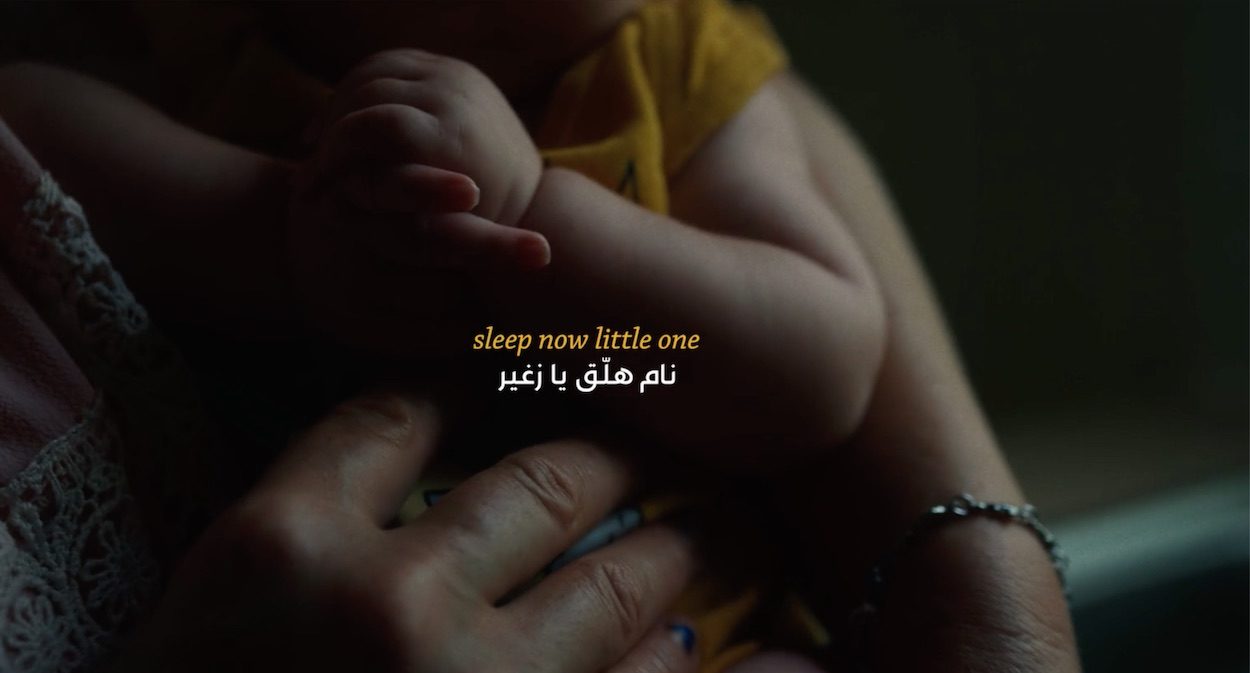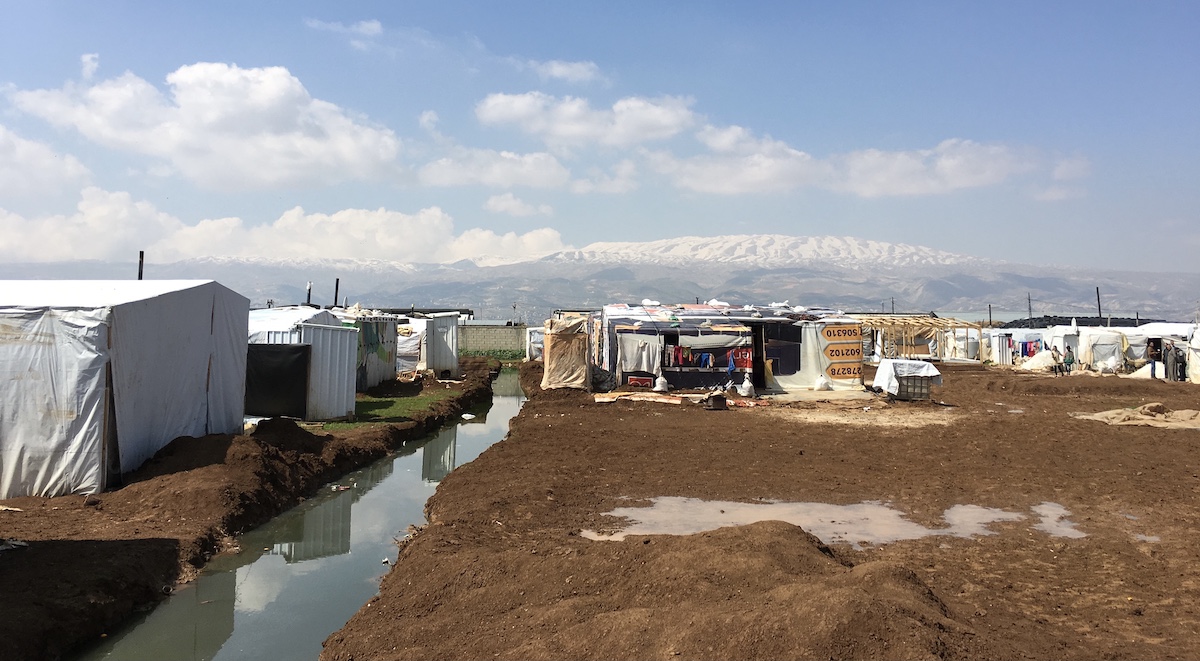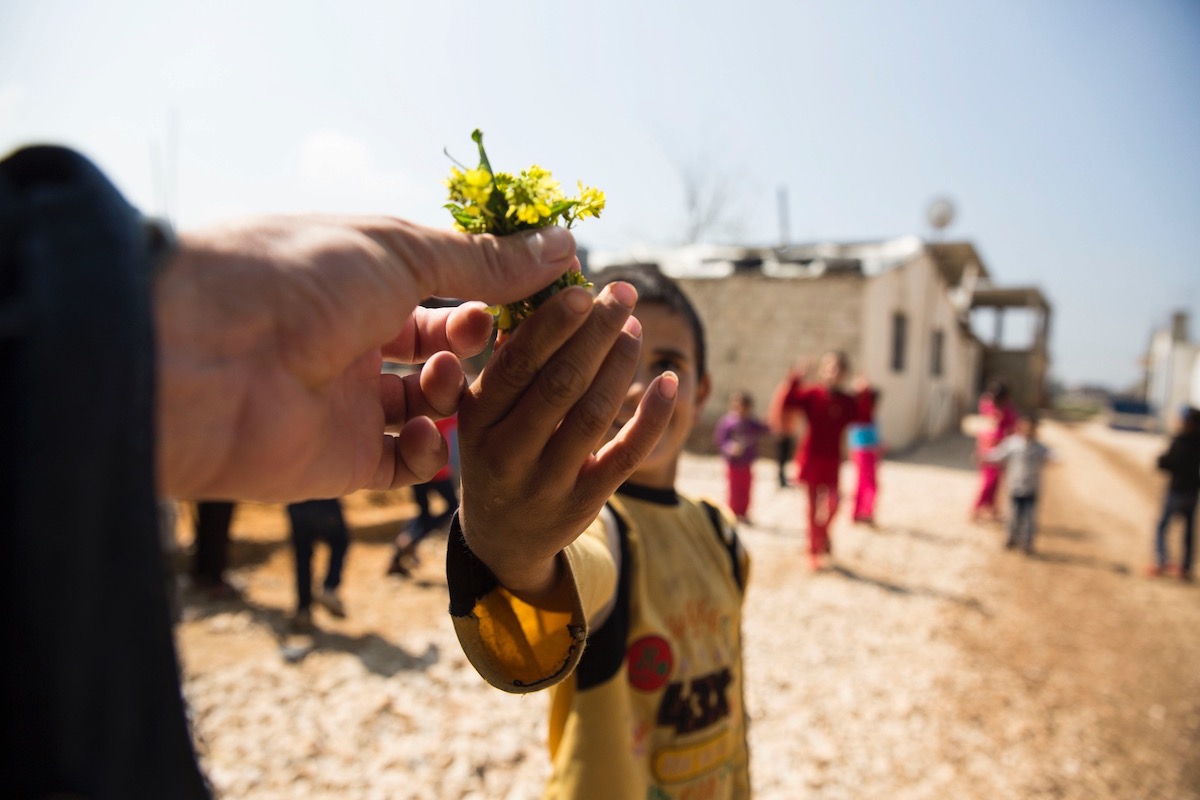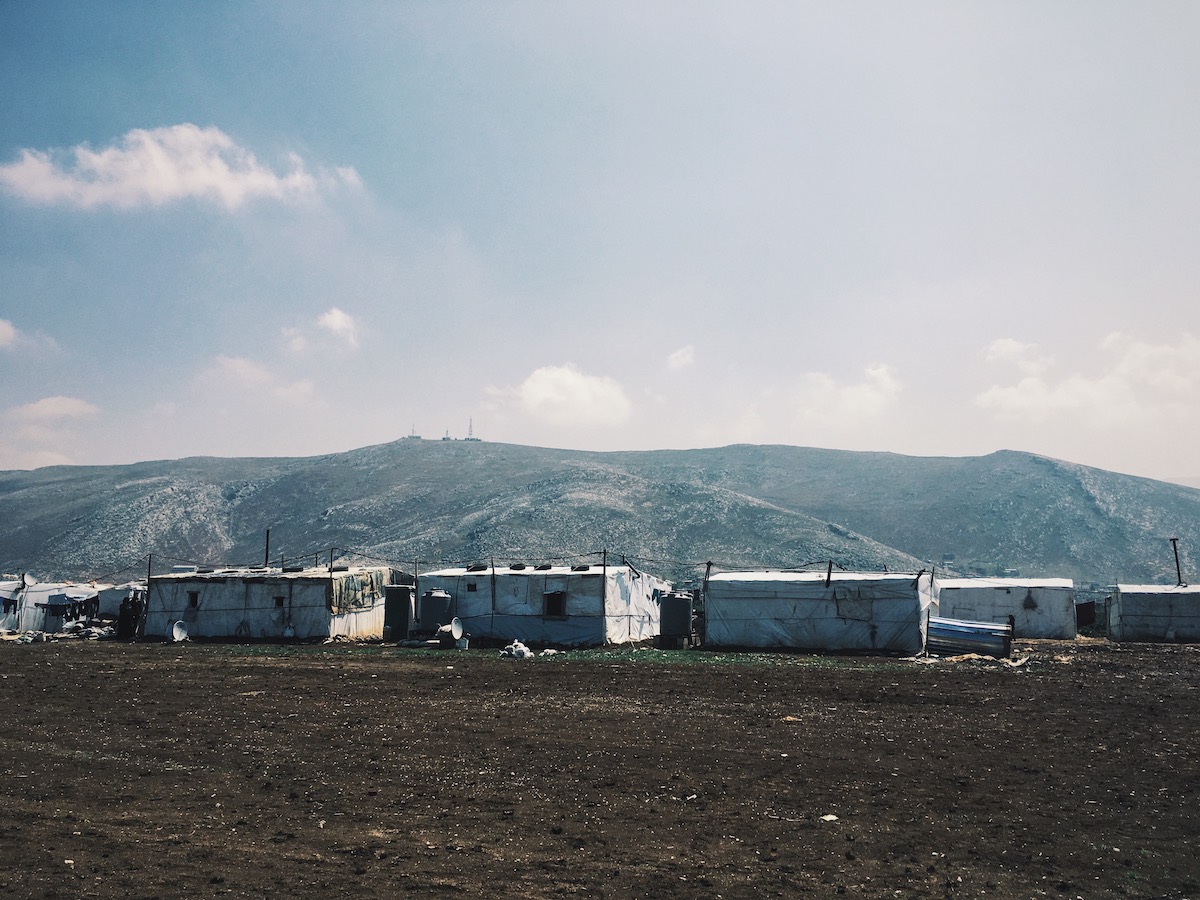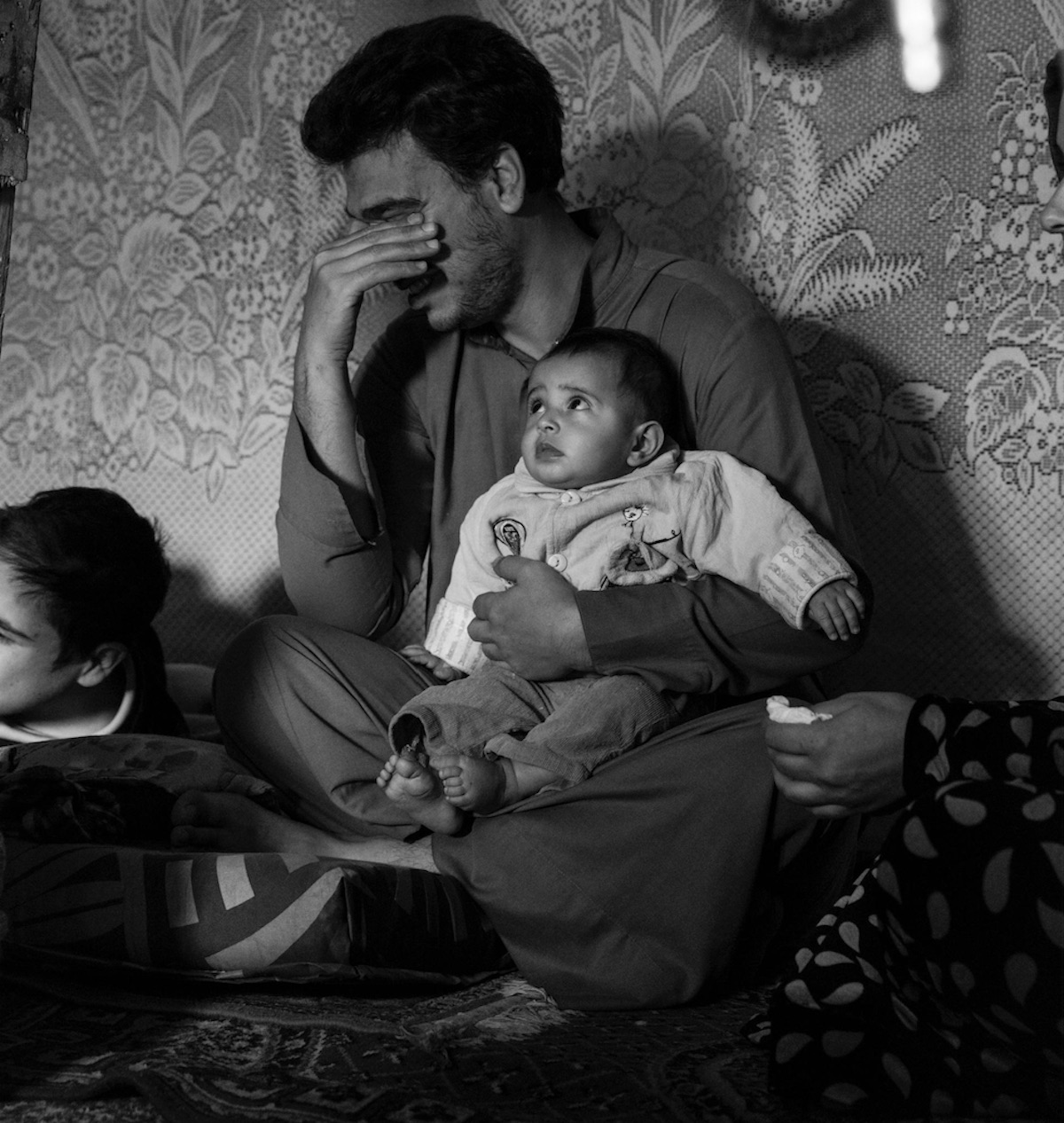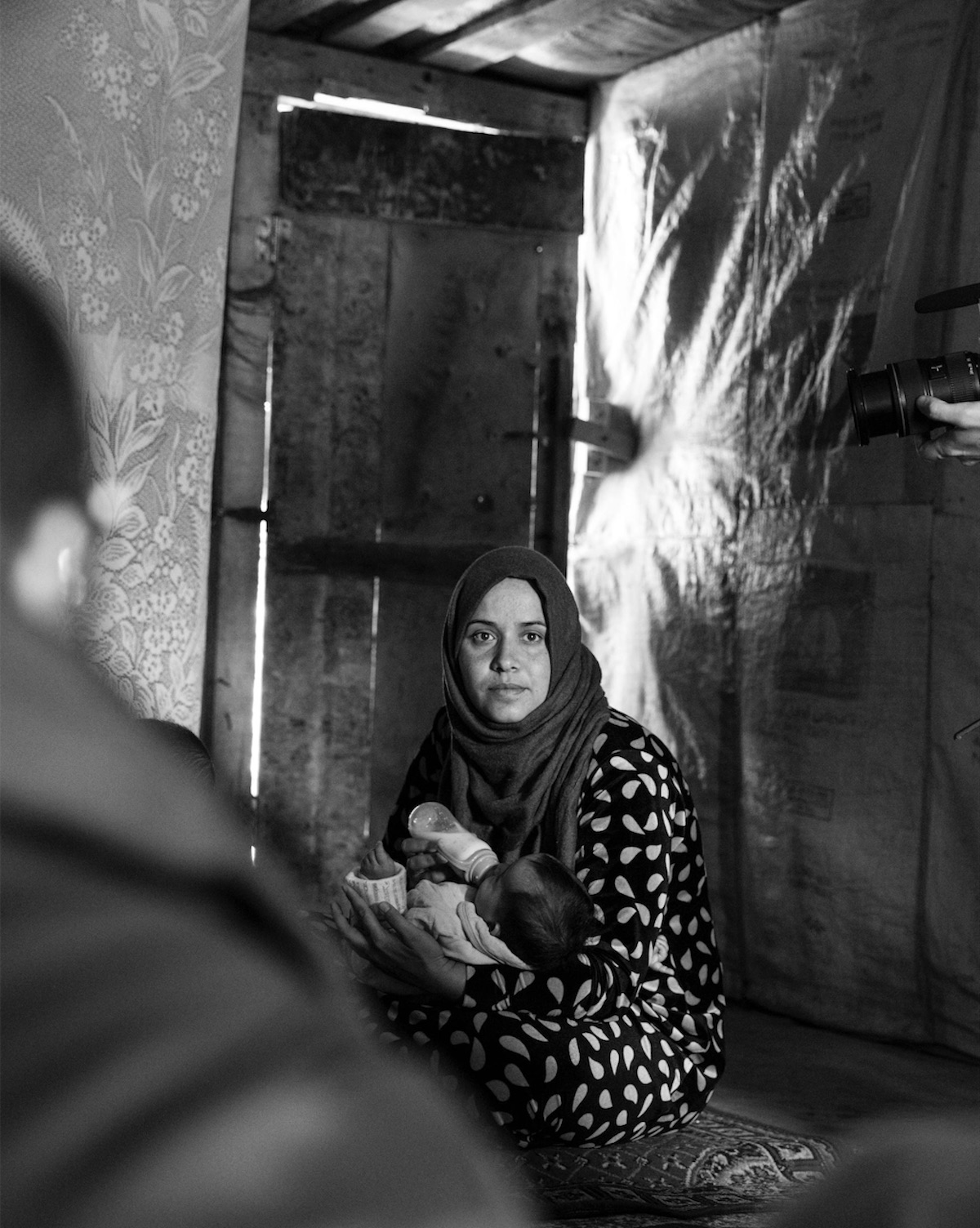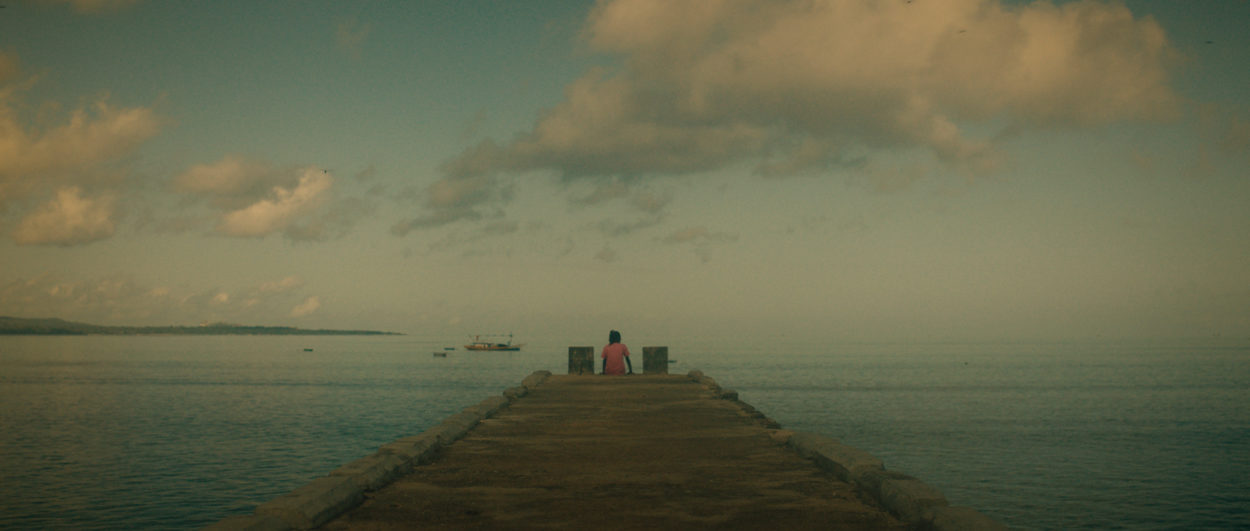These stills were taken by Paul Nevison on a previous trip to refugee camps on the Lebanese / Syrian border
What was it that first captured your attention to create this film?
I was told a story about a mother who in the middle of air strikes would comfort her small children by telling them stories incorporating the sounds of war around them. Explosions became the ‘stomping of angry giants’ and artillery impacts the ‘bashing of drums’. It spoke of the deep resilience that many are forced to draw from during unimaginable situations.
The tragedy of the Syrian conflict has haunted me since 2016 when I travelled to a refugee camp in the Beqaa Valley in Lebanon with the NGO World Vision. I met such wonderful people who had endured so much suffering, their stories have stayed with me and I think I’ve been looking for ways to exorcise some of those ‘demons’. The story of the mother reminded me again of those families whose sorrows have been overtaken somewhat by more recent world events.
While talking to many of the families I was struck by their deep love for their homeland and how vividly they would describe their homes and favourite places – in many cases now turned to rubble. Several parents still had their house keys, a symbol of a deep desire to return home. This is the great contradiction that amongst great hardship is often an equally intense sense of hope…. these were the two themes I wanted to explore in Prayer of the Mothers.
Please tell us about the process of making the film. Did you edit it as well?
When I heard the mother’s story it was so compelling to me that it then became a process of what resources could I pull together to make something meaningful in a travel-less Covid world. (In Australia the international borders are still closed). I knew it would be a process of pulling favours from friends around the world to make it happen.
I had a contact with a refugee resettlement organisation in my home state of Queensland, so I contacted them and found a family that agreed to take part in the film. I wanted to capture something simple yet profound – for me a woman holding her child communicates both the natural protective and nurturing instinct in equal tension with the other great accompanying emotion of parenthood which is uncertainty. All parents hold their children with great hope and anxiety.
Once we had something to film I called up cinematographer Caleb Ware and we headed on the three-hour drive to film our resettled family in Toowoomba.
I also needed footage from the Syrian area and so I contacted a Lebanese friend Dan Khoueiry, to see if I could look through his personal library of footage and we were able to land on a few shots that held the emotion and storytelling qualities I was looking for.
I wrote the VO script inspired by both the story of the mother comforting her children and the deep desire of the families I met in the camps to return home.
I thought a general Arabic VO would do the trick, but Dan as a native Arabic speaker, insisted for authenticity that it needed to be voiced by a Syrian in order to get the correct accent and dialect. That is easier said than done as many who have fled the regime are afraid of being identified. Through several contacts and with many people pulling out at the last minute due to fear, we were finally able to get an anonymous voiceover recorded.
Once I had all the pieces I did a first pass on the edit and went back and forth with Dan to make sure all the Arabic was properly placed and made sense.
Ryan Taubert had been finishing up the score on my feature documentary in his studio in Los Angeles and one of the tracks from that film had the emotion I was looking for so I syphoned off that cue for this film.
Brett Shaw fixed up my sound design and did a lovely mix from his studio in Brisbane, while Matic Prusnik in New Zealand did a lovely job on the grade weaving together all the footage from the different camera sources.
How was the film funded?
The budget was zero dollars – but I used up a lot of my favours in the process.
With travel still off the cards, how have you found working during Australia’s lockdowns and restrictions?
Prior to Covid I spent most of my time travelling to far flung parts of the world making cinematic documentaries – like a lot of us that all came to a grinding halt last March. As luck would have it I had just become friends with the good people at Sweetshop and I’ve been making a foray into the world of commercials which I’ve been enjoying quite a lot. The transient snap lockdowns and internal border closures here in Australia have been a little tricky to navigate when planning shoots … but I’m happy to be working.
The extended time at home also gave me the space to finish post on my first true crime feature documentary “Evil Good” which is coming out later in 2021.
Anything else you’d like to share?
Ten years on the suffering of the ordinary Syrian people hasn’t gone away and the pandemic is only adding to their despair. In a world seemingly overflowing with adversity and hardship I hope we don’t become calloused to the lives of the other. If the pandemic has taught us anything perhaps it’s that what we think is solid can shift under our feet at anytime – my hope is that it could lead us to more understanding, generosity and compassion for our neighbour.
Paul Nevison website
